James Monahan to argue that Camden council’s decision to green light 19-storey tower breaches planning policy
An architect and veteran campaigner has launched a judicial review of Camden council’s decision to approve DSDHA’s plans for a “monstrous” 19-storey office tower in Bloomsbury.
James Monahan of Monahan Blythen Hopkins Architects has asked the High Court to look into the lawfulness of Camden’s approval of the One Museum Street scheme, arguing the council has failed in its duty to protect heritage assets.
The highly controversial proposals for client BC Partners were signed off in November last year despite objections from Historic England, the Georgian Group, Save Britain’s Heritage and the London School of Economics.
More than 500 letters objecting to the planning application were also sent in by locals, including film-maker Mike Leigh and Victorian Society president Griff Rhys Jones.
The mixed-use scheme would replace the 1960s Selkirk House, a 17-storey former Travelodge hotel, with 44 homes and 22,650sq m of office space. It would also include three six-storey buildings and one five-storey block containing housing and retail space.
But campaign group Save Museum Street, of which Monahan is a member, have said the plans would damage the setting of the Bloomsbury and Covent Garden conservation areas and the nearby grade I-listed British Museum, Bedford Square and Nicholas Hawksmoor’s St George’s Church.
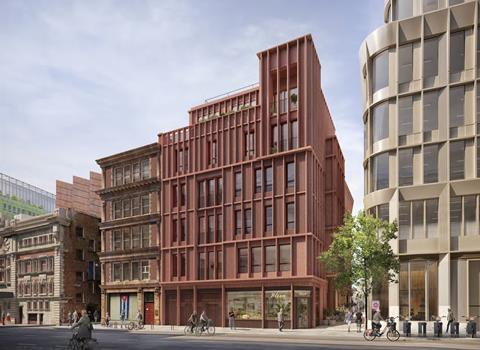
Monahan’s case will argue that Camden council’s decision to approve the scheme had not adhered to requirements within national planning policies, the London Plan and the borough’s own local planning policies.
“The decision to grant permission for a monstrous, speculative office tower in Museum Street, which had attracted massive opposition, is one of the worst examples of a fawning attitude of the planners towards developers,” he said.
“It sets a precedent for similar or even taller towers that will soon obliterate the historic character of central London.”
> Also read: Green light for DSDHA’s controversial Bloomsbury tower plans
The judicial review is the latest bid launched by Monahan, who was part of a campaign to stop plans to redevelop parts of Covent Garden in the 1970s and 1980s.
Prior to last year’s decision to approve the scheme, Monahan, whose practice is based on Clerkenwell Road, proposed an alternative approach for the site which would see the existing Selkirk House refurbished and neighbouring buildings restored, which was not taken into consideration by the council.
“Camden’s planning officers did not listen and the political elite, complacently sitting on their massive Labour majority, nodded the approval through at Camden’s planning committee,” he said.
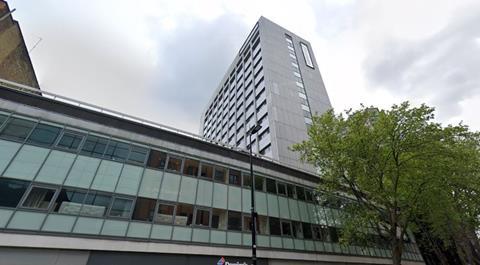
“Senior Camden politicians give every indication that they do not care, and are far too busy eying up parliamentary seats, and senior planners just move on to pastures new and leave their mistakes behind. It all sounds like a very familiar story but this time Camden council’s planning committee and planning officers are being held to account.”
The approved scheme is the third incarnation of the proposals, following earlier plans by DSDHA for a 21-storey tower on the site which were revised.
Historic England said the latest plans would still exacerbate the “visual discordance” caused by the existing building in views of the nearby historic buildings due to the proposed tower’s height and bulk.
Save Britain’s Heritage objected to the proposals because of the impact of the tower element, which is 20m higher than the existing tower, and also what it described as the scheme’s “substantially harmful and disproportionate” carbon cost.
> Also read: Campaigners challenge carbon-cost figures for DSDHA tower
Sustainability guru Simon Sturgis’ Targeting Zero consultancy calculated that demolishing Selkirk House would result in “approximately 64,000 tonnes of unnecessary carbon emissions over the next 60 years” under DSDHA’s original 2021 plans.
Camden council, BC Partners and DSDHA have been contacted for comment.


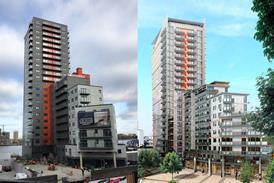


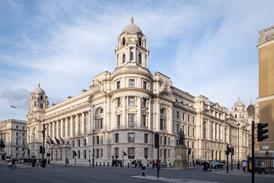



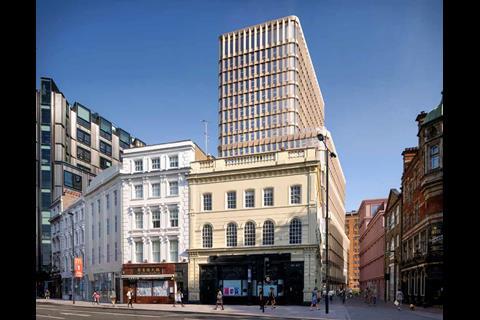
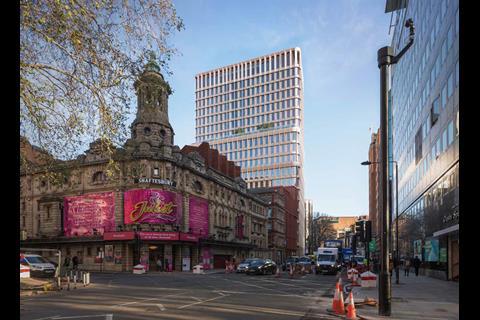
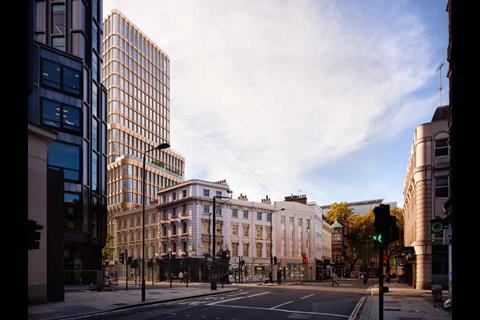

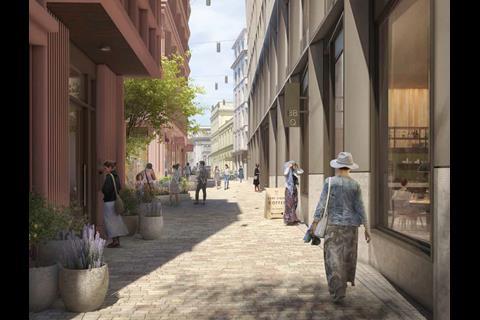








1 Readers' comment